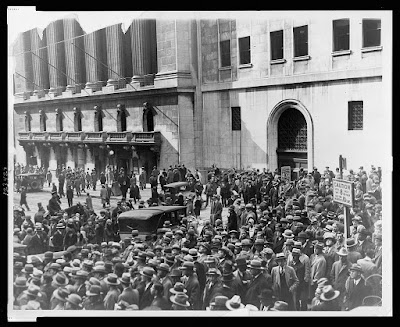Happy Indigenous Peoples' Day! While the federal government
still recognizes Columbus Day (see, e.g., presidential proclamations from
2019 and
2016), or as one Washoe Tribal Member once described
it to me, Lost Italian Day, cities like
Seattle and
Los Angeles have replaced the
holiday with a celebration of everything Native.
 |
Makah Welcome Figure, on display at Burke Museum.
photo credit: John Miller |
This year’s celebration comes at the tail end of the
Burke Museum’s grand opening on campus. The
museum features a variety of exhibits on biodiversity, the oceans, and fossils.
However, the highlight of the new museum for me is its vast coverage of Native and
Indigenous cultures from throughout the world. The museum’s
Northwest Native
Art takes guests on a journey of artistic heritage while exploring totem
poles, a canoe, and other works from Suquamish, Wasco, and Tlingit Tribal Members.
In
Culture is Living, museum patrons dive into vibrancy of Indigenous cultural
from North America, Polynesia, as well as Southeast Asia and more. The exhibit
explores history and shares the accomplishments and continuing contributions of
Native culture to our communities today. After you finish in the Exhibit Hall,
make your way to ground level and try
Off the Rez, a Native owned and operated
café featuring Indian tacos, chili, salads, and full coffee bar for all to
enjoy (no museum ticket necessary).
If you are unable to visit the Burke at this time, you can get a taste via its
Collection
Databases online. Just navigate to the website and
click on a collection that interests you. If you are interested in seeing what
Native artifacts the Museum has, click on the
Archaeology
Database. You can conduct a plain language search using keywords or an
exact phrase to help find the items in which you are interested. Search results
will contain an item’s name, catalogue number, site of discovery, as well as a
map showing you were the item came from, and if available, a photo of the item
as well. If you are interested in items that fall under the
Native American Graves Protection and Repatriation Act (NAGPRA), you will not find them
featured in the Collection Databases. Out of respect to Tribes, these items are
not featured online or on display in the Exhibit Hall. Rather, feel free to
visit the Burke and speak to one of its NAGPRA specialists, who are more than
willing to discuss the efforts of the Museum to restore these funerary objects
to the Tribes and people with which they belong.
By the way, admission to the Burke is
FREE for UW students, faculty, and staff! For more information, visit the
Burke Museum’s website.



